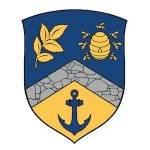Sparhawk Academy is a private, independent day school for boys in grades 3-9 located in Millis, MA. It was founded by a group of parents and educators in 2018 after several years of study and preparation. We selected this site after an extensive search through the suburbs southwest of Boston because we believe its size and beauty and its accessibility on Route 115 make it an appealing location for many families looking for a great education for their boys.
Many of our families have daughters enrolled at the Montrose School and want to provide a similar opportunity for their sons. We started with 38 boys in 2018 and have grown to our current enrollment of 110 students largely by word of mouth. While we began as an elementary and middle school, in 2024 the Board of Directors voted to add a high school, starting with the ninth grade in the fall of 2025. We have been guided in our development by several other similar schools around the US, including The Heights School in Potomac, MD, Northridge Prep in Niles, IL, and Western Academy in Houston, TX.
The school has a Catholic ethos and the Prelature of Opus Dei provides a chaplain who oversees the religious instruction of the boys. As a private, independent school Sparhawk has its own Board of Directors. It does not depend the Archdiocese of Boston; the Board is entirely responsible for the financial maintenance of the school. We have an excellent relationship with the Catholic Schools Office. Cardinal O’Malley is aware of the project and supports it.
As we have grown we have added a classroom building to the property, giving us a capacity of up to 120 students. With almost 60 acres we have been able to locate a building on the property in a way that maintains the beauty of the landscape, respects and even enhances the quality of life of our neighbors and the town, and meets our pedagogical needs.
We incorporate the extensive fields, woods, trails, and wetlands into a curriculum that emphasizes first-hand interaction with the natural world, an approach especially suited for studies in natural history, art, religion, and physical education. We are influenced Richard Louv’s book Last Child in the Woods, in which he makes a strong case that children today benefit from eliminating ‘nature deficit disorder’, the consequence of moving away from spending time out of doors, making and growing things, and observing the beauty of nature first-hand. Our school property allows students to explore the woods and wetlands to identify local species of birds, mammals, plants and insects, fostering an aptitude for careful observation, appreciation, and greater awareness of the dynamic natural world surrounding them.
